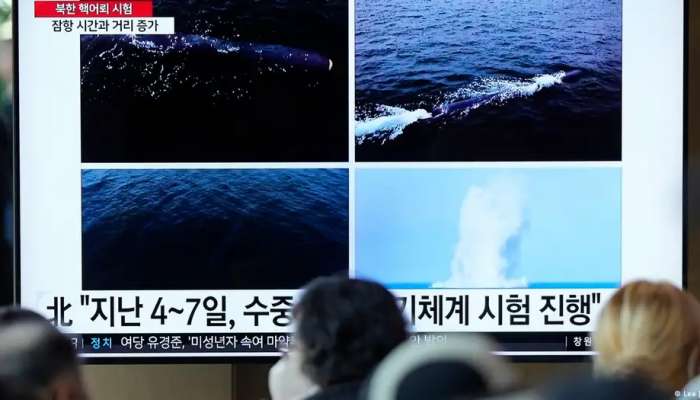
Pyongyang: North Korea said on Friday that it had conducted tests of an underwater nuclear weapons system.
State-run agency KCNA reported that the test of the "Haeil-5-23" drone system was conducted off its east coast without specifying when the tests took place.
The reported weapons test could not be independently verified, but analysts have questioned whether Pyongyang does indeed have such a weapon.
"Haeil" means tsunami and the system was designed, according to state media, to make surprise attacks targeting naval strike groups and major ports by creating a large radioactive wave from a sub-aquatic explosion.
The first tests of the drone system reportedly took place in March 2023,
"Our army's underwater nuke-based countering posture is being further rounded off and its various maritime and underwater responsive actions will continue to deter the hostile military maneuvers of the navies of the US and its allies," the North's Defence Ministry said in a statement.
Reporting of the conducted tests came as the US, South Korea and Japan were conducting what has been considered the largest combined naval exercises in a show of strength against the North.
Drills took place in waters off South Korea's Jeju island and involved a US aircraft carrier.
KCNA also reported Friday that Foreign Minister Choe Son Hui and a government delegation had returned following an official visit and talks with Russian President Vladimir Putin.
Earlier in the week KCNA reported that Choe and Russian Foreign Minister Sergey Lavrov discussed "strategic and tactical cooperation" along with implementing an agreement to forge closer ties after talks in September.
The US has expressed concern over reports that North Korea is providing arms to Russia in its war of aggression against Ukraine in exchange for Russian nuclear technology that furthers Pyongyang's nuclear ambitions.
On Thursday White House senior director for arms control, Pranayu Vaddi said that the security threat presented by Pyongyang could change "drastically" in the years to come as a result of cooperation with Moscow.
"What we're seeing between Russia and North Korea is an unprecedented level of cooperation in the military sphere," Vaddi told Washington's Centre for Strategic and International Studies think tank.
"And I say unprecedented very deliberately — We have never seen this before."
"I think the nature of North Korea as a threat in the region could drastically change over the coming decade as a result of this cooperation," Vaddi said.